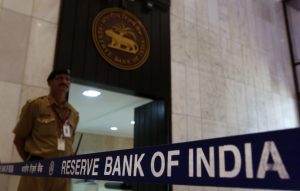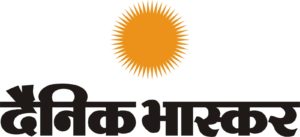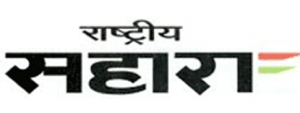
13-01-2017 (Important News Clippings)
To Download Click Here
A trinity on free speech

The former is operationally even more relevant in our daily lives than the latter. The Supreme Court has consistently expanded the boundaries and contours of free speech in free India.
It is therefore apposite that a recent trinity of apex court judgements on that subject be celebrated for what they did for free speech, even while upholding its boundaries and limitations in two of the three cases and not even mentioning it in the third! That all three were authored by the same Judge (who happens to be next in line for CJI) may well be a coincidence, but they represent the strong, continuing and collective commitment by the Supreme Court, at the institutional level, to bat strongly for free speech in its diverse dimensions.
The first, the so-called Gandhi poem case (Devidas Ramchandra vs Maharashtra, 14/5/2015) refused to quash IPC pornography charges against the accused who had written allegedly obscene poetry against an iconic historical figure, Gandhi. It rightly rejected the argument that free speech be given absolute protection when used creatively in poetry on Gandhi.The apex court also rightly leant heavily in favour of poetic licence, and applied the community’s contemporary notions to judge obscenity.
But, equally rightly, it sent the author back to argue all points in the trial, while rejecting his petition to quash the prosecution. However, the judgement appears to have missed an opportunity to fully explore all facets of the right to offend as a part of free speech.The second, the criminal defamation case (Subramanian Swamy vs UOI, 13/5/16), upheld the IPC provision allowing criminal defamation as a reasonable restriction on free speech.
Free speech is protected no less when the court stands up for limiting its boundaries to where the width or swing of your arm hits your neighbour’s nose.Holding that the criminal defamation provisions of the IPC do not become unconstitutional merely by passage of time as antiquated British-era pre-Constitutional provisions also strike the right balance between free speech and reasonable restrictions on it.
The law of defamation is a delicate marriage of an odd couple. Free speech and the right to reputation (a facet of article 21) have learnt to coexist. Marital disputes are inevitable but reciprocal restraint and respect have meant that divorce is rarely, if ever, imminent.The marital balance was struck by the framers themselves when Article 19(2) provided that nothing in 19(1) (a) shall “affect the operation of any existing law” to impose reasonable restrictions, including defamation.Defamation does not partake only of individual interest. It protects reputation which is the person’s “estimation in the eyes of the general public”. It is necessary for social stability.
It is what one lives for, swears by, works his skin off for, fights for and dies for. “Reputation of one cannot be allowed to be crucified at the altar of the other’s right of free speech” is what the Court rightly emphasised.The third, the eBay pornography case (Digumarti vs NCT, 14/12/16) held inapplicable and non-invokable against an accused, a platform provider intermediary (eBay), those provisions of the IPC which deal generally with pornography through any medium, on the ground that alleged pornography through the internet medium must be dealt exclusively under the IT Act.
And that the latter must be held to impliedly override the general IPC provisions. There would be adverse effects on freedom of the internet (and hence freedom of speech) if platform providers, who are exempt under section 79 of IT Act (so long as they take prompt steps to remove offending material upon notification), would still be prosecutable under general IPC.That’s even though Section 81of the IT Act overrides other general enactments and punishment for all “electronic violations” is provided in section 67.
This trinity of sections in the IT Act would be rendered negatory if prosecutions could still continue under IPC despite discharge under the IT Act. The irony is that the judgement, rightly tailored around the provisions of the IPC and IT Act, did not need to mention free speech or 19(1)(a) even once.But its indirect effect on that is significant! Most stakeholders, and especially the press, should be happy at this improved equilibrium in the equation between free speech and its boundaries through this trinity of apex court pronouncements.
(The writer is former Additional Solicitor General of India)
पूर्व सैन्य अधिकारियों की महारत से मिलेगी ताकत
Date: 13-01-17
वैश्विक मानकों से दूर हैं भारत की बहुराष्ट्रीय कंपनियां
देश का निजी कारोबारी जगत जिसे हम इंडिया इंक के नाम से जानते हैं, वह आखिर किस दिशा में बढ़ रहा है? आमतौर पर जारी किए जाने वाले तिमाही नतीजों के आंकड़ों के अलावा आखिर इनके बड़े लक्ष्य क्या हैं? जहां तक संगठनात्मक आकार और ढांचे में तेजी से बदलाव और उसे किफायती बनाने की बात है तो वर्ष 2000 के दशक के आरंभ में आर्थिक सुधारों ने उसे अंजाम दे दिया। तब से अब तक भारतीय उद्योग जगत ने शायद ही कोई बदलावपरक कदम उठाया हो।
बजट में छोटे उद्योगों पर ध्यान देकर जॉब बढ़ाएं
 देश में रोजगार बढ़ाने के लिए मैन्यूफैक्चरिंग और खासतौर पर अतिलघु, लघु और मध्यम उद्योग (एमएसएमई) क्षेत्र महत्वपूर्ण है। इस दृष्टि से आगामी बजट में इस क्षेत्र के अनुकूल कदम उठाना उिचत होगा। जीडीपी में योगदान, औद्योगिक उत्पादन और नौकरियां निर्मित करने की दृष्टि से इस क्षेत्र ने महत्वपूर्ण भूमिका निभाई है। हमारे जीडीपी में इसका योगदान मुश्किल से 38 फीसदी है, जबकि जर्मनी में यह 52 फीसदी, चीन में 58 फीसदी और दक्षिण अफ्रीका में 42 फीसदी है। जाहिर है भारत जैसी विशाल अर्थव्यवस्था में जीडीपी में योगदान व नौकरियां निर्मित करने की इससे अधिक नहीं तो इतनी तो गुंजाइश है ही। स्पर्द्धा करने लायक वित्तीय दरों, व टेक्नोलॉजी के वांछित स्तर के अभाव, श्रमिकों संबंधी मुद्दे, सिस्टम व सर्टिफिकेशन को अपनाने में देरी से क्षेत्र अपनी पूरी क्षमता के दोहन में नाकाम रहा है।
देश में रोजगार बढ़ाने के लिए मैन्यूफैक्चरिंग और खासतौर पर अतिलघु, लघु और मध्यम उद्योग (एमएसएमई) क्षेत्र महत्वपूर्ण है। इस दृष्टि से आगामी बजट में इस क्षेत्र के अनुकूल कदम उठाना उिचत होगा। जीडीपी में योगदान, औद्योगिक उत्पादन और नौकरियां निर्मित करने की दृष्टि से इस क्षेत्र ने महत्वपूर्ण भूमिका निभाई है। हमारे जीडीपी में इसका योगदान मुश्किल से 38 फीसदी है, जबकि जर्मनी में यह 52 फीसदी, चीन में 58 फीसदी और दक्षिण अफ्रीका में 42 फीसदी है। जाहिर है भारत जैसी विशाल अर्थव्यवस्था में जीडीपी में योगदान व नौकरियां निर्मित करने की इससे अधिक नहीं तो इतनी तो गुंजाइश है ही। स्पर्द्धा करने लायक वित्तीय दरों, व टेक्नोलॉजी के वांछित स्तर के अभाव, श्रमिकों संबंधी मुद्दे, सिस्टम व सर्टिफिकेशन को अपनाने में देरी से क्षेत्र अपनी पूरी क्षमता के दोहन में नाकाम रहा है।सेवा क्षेत्र में भी एमएसएमई की अत्यधिक संभावनाएं हैं इसमें इन उद्योगों ने संगठित खेरची व थोक बिक्री, व्यापार, ई-कॉमर्स, परिवहन व पर्यटन, साइबर सुरक्षा, संचार, स्वास्थ्य रक्षा, मीडिया व मनोरंजन क्षेत्र में इनोवेटिव सर्विस डिलीवरी मॉडल निर्मित कर अपनी ताकत दिखाई है। सेवा क्षेत्र ने बाध्यताओं व तीव्र वैश्विक स्पर्द्धा के बावजूद उच्च वृद्धि कायम रखी। आने वाले वर्षों में इस क्षेत्र के उद्योग अौर बढ़ेंगे और भारतीय अर्थव्यवस्था में महत्वपूर्ण भूमिका निभाएंगे।
What we need to guard
Fundamental rights are no gifts of the state, the Constitution only confirms their existence.

A controversial issue is whether a court can deduce additional fundamental rights which are not expressly set out in the Constitution. The US Supreme Court has deduced rights of privacy and parenthood on the reasoning that the specific guarantees in the Bill of Rights “have penumbras formed by emanations from those guarantees that help give them life and substance”. A similar approach has been adopted by Irish courts in the Republic of Ireland.
Our Supreme Court has also deduced fundamental rights which are not specifically mentioned in the Chapter on Fundamental Rights on the principle that certain unarticulated rights are implicit in the enumerated guarantees. For example, freedom of the press has been deduced on the ground that it is implicit in the guarantee of freedom of speech and expression. The right to travel abroad and return to one’s country has been spelt out from the expression “personal liberty” in Article 21 of the Constitution. The Court has also ruled that right to education until the age of 14 is a fundamental right emanating from the all pervasive Article 21.No fundamental right is or can be absolute. Every Constitution provides for restriction of fundamental rights in general public interest.
However, the restriction imposed should not be excessive or disproportionate. In determining this issue, judicial subjectivity is likely to play a part. But that is no ground for declining judicial review. The Supreme Court, in the celebrated State of Madras v. V.G. Rao decided in March 1952, acknowledged that “it is inevitable that the social philosophy and the scale of values of the judges participating in the decision would play an important part”, but emphasised that if the impugned legislation violated a fundamental right it would have to be struck down because as regards “fundamental rights”, the Court has been assigned the role of a sentinel on the “qui vive”.
A well settled principle of constitutional adjudication is to construe a statute in a manner that will obviate constitutional challenge. Courts in the US have acted on this principle. Our Supreme Court has also adopted the same principle and, in order to sustain the constitutionality of a statute, adopted the judicial technique of reading down or reading into the impugned provision certain words.Utmost judicial vigilance is necessary with regard to restraints on the fundamental right of freedom of expression and personal liberty, which are the favourite targets of attack by authoritarian regimes because their suppression enables the regime to neutralise the dissenter, jettison accountability and ensure its continuance.
Serious violations of fundamental rights occur during emergencies. The usual facile excuse offered is that fundamental rights are required to be suspended temporarily in order that the nation may survive. Actual experience establishes that those to whom supreme authority has been conferred are reluctant to give it up. Temporary dictatorship often becomes permanent tyranny because when the safeguards of the Constitution are surrendered to the rulers the means of getting them back also get surrendered.
A mere declaration of invalidity of a detention order or seizure of the press or revocation of a licence to carry on a business would not provide a meaningful remedy to a person whose fundamental rights have been violated without issuing appropriate directions for compensation for breach of constitutional safeguard.A notable achievement in the protection and promotion of fundamental rights has been by development of Public Interest Litigation (PIL).
Thanks to PIL, enjoyment of fundamental rights has become a living reality, to some extent, for at least some illiterate, indigent and exploited segments in our society. Numerous prisoners languishing in jails inordinately awaiting trial have been released; persons treated like “serfs” and held in bondage have secured freedom and have been rehabilitated; conditions of inmates in care homes and in asylums for the insane; and of workers in stone quarries and brick kilns, have been ameliorated. Judicial review in PIL is a delicate exercise and can also cause problems and a cynic may well question its utility. The answer is that it has a salutary effect on administration which knows that it has to conform to the discipline of fundamental rights. Above all, the fundamental rights part in the Constitution is a salutary reminder that the powers of the state are not unlimited and that human personality is priceless. We need these reminders constantly.
Date: 12-01-17
Should Hear Them
It’s time parliamentary panels open their doors when witnesses testify.

In fact, the RBI has initiated a six-monthly interaction with the finance committee where the governor reports on the activities of the central bank, and the committee offer its views and concerns. Lack of debate on the issue of demonetisation in the winter session of Parliament has fuelled tremendous interest in the governor’s testimony. This newspaper has published 10 questions posed to the governor by the public accounts committee (IE, January 9).
The public accounts committee of Parliament has been in existence since 1921 and the departmentally related committees (like finance, defence, etc.), as we know them today, were given final shape in the early nineties. Members of Parliament from both houses are part of these committees. They scrutinise legislative proposals initiated by a ministry, its demands for grants, annual reports, and long-term policy documents presented to Parliament. These committees do the heavy lifting of parliamentary oversight of government functioning. To do their work, they are empowered to call witnesses to give evidence and produce documents required by the committee.
These committees have contributed immensely to the policy debate in Parliament. However, their work has always been behind closed doors. They meet in private; their meetings open only to members of the committee, Parliament staff and anyone invited to testify before the committee. The deliberations of the committee are confidential, and evidence tendered before it is usually kept secret and made public only after the committee presents its report. It makes sense to hold the committee’s deliberations closed door. It promotes the free exchange of ideas between participating MPs. The absence of cameras live telecasting its proceedings discourages political grandstanding.
This is possibly the reason that at the time of framing of general rules governing the proceedings of committees, there were divergent views amongst MPs about the press being allowed to witness the sittings of committees.
However, this logic does not apply for keeping the testimony of individuals before committees’ secret. For example, in the US, statements made before committees of Congress are open to the public and are also telecast live. The chairman of the Federal Reserve, Janet Yellen, routinely testifies before committees of the House of Representatives. It is televised and archived for easy viewing. In addition, the prepared statements made by individuals testifying before the committee are uploaded on the website of the committee. In the United Kingdom, the House of Commons publishes a calendar of select committee meetings which are open to the public. This week, the oral evidence of Mark Carney, governor of the Bank of England on last year’s financial stability reports was open to the public. Also open were multiple select committee meetings examining the impact of Brexit on the country.
There have been a few examples of the opening up of legislative committees in our country. Last year, a committee of the Delhi Vidhan Sabha looking at irregularities in sports administration bodies of cricket and hockey allowed the press to view its proceedings. In 2008, the Goa Vidhan Sabha had also opened up its committee meetings to both the public and press. In the 13th Lok Sabha, given the widespread public interest, the chairman of the joint committee examining the Stock Market Scam briefed the press at the end of each committee meeting.
It might be an opportune time for our parliamentary committees to open their doors when witnesses are testifying before them. It can be done in multiple ways. The easiest will be to permit Lok Sabha and Rajya Sabha television to telecast the testimony of witnesses. Allowing the press to observe the evidence can be used to supplement it. Publication of the transcript of testimony is another low-hanging fruit when it comes to opening the committees. The final step can be allowing the general public to view evidence proceedings of committees.
The rules of parliament provide some avenues for opening committee meetings. For example, rule 269 of the rules of procedure of the Lok Sabha gives the chairman of a committee the discretion to allow evidence presented before it to either be treated as confidential or made public. It takes a minimum of three months to finalise the report of a parliamentary committee. The current rules can be amended to enable uploading of the evidence given before the committees before the final report is published. These changes will have to be tempered to assure individuals that they can testify freely before committees.The changes to the working of parliamentary committees are essential steps for securing openness and transparency. They also have the added advantage of strengthening Parliament’s accountability.
Date: 12-01-17
Rain shadow south
The failure of the northeast monsoon will impact the economy of southern India. Government must plan ahead.
On Wednesday, Tamil Nadu declared a drought. The state government also announced that more than 140 farmers took their lives between October and December 2016 because of crop failure. The agrarian crisis in the state is a fallout of a weather vagary that hasn’t received much notice. The northeast monsoon — critical to the southern peninsula, particularly Tamil Nadu — has been a failure, with overall rainfall between October and December 45.2 per cent below normal. This is the worst since the 48.3 per cent deficit recorded in 2011. In October 2016, 22 districts of Karnataka were declared drought hit. As 2016 drew to a close, South India’s combined reservoir levels were 22 percentage points less than the average water availability over the past 10 years. The situation has serious implications for crops like paddy and coconut and will impact milk and sugar production, especially in Karnataka.
The poor northeast monsoon, this year, is a double blow for the southern states. Tamil Nadu, Kerala and south interior Karnataka and coastal Karnataka had already reported respective shortfalls of 19 per cent, 34 per cent, 21 per cent and 21 per cent during the southwest monsoon (June-September). The corresponding deficits of 62 per cent, 61 per cent, 70 per cent and 63 per cent reported for the northeast season makes matters worse for these regions.
The deficit in the northeast monsoon is likely to have implications for the economy. It may also accentuate inter-state river disputes, especially the sharing of Cauvery waters. While it is too early to predict the exact shortfalls in crop production, sowing figures from South India do not portend well. Tamil Nadu, for example, had targeted 14.5 lakh hectares under rice in 2016-17, according to the agriculture ministry. But barely seven lakh hectares was under the plough by January 5. This is 33 per cent less than the five-year sowing average of 10.68 lakh hectares. The shortfall will also impact livelihoods and have repercussions on the mechanisms to deal with crop failure. So far, less than a third of the drought hit areas in Karnataka have been covered by the Pradhan Mantri Gram Fasal Bima Yojana. The northeast monsoon is considered a fringe player in the agro-climate story. But imperatives of the economy and the needs to secure people’s livelihoods require a rethinking on that front.
एनजीओ पर शिकंजा
सर्वोच्च न्यायालय ने गैर सरकारी संगठनों (एनजीओ) को जवाबदेही के दायरे में लाने के लिएउनके खातों का 31 मार्च तक ऑडिट कराने का निर्देश दिया है। यह जिम्मेदारी ग्रामीण विकास मंत्रालय के अधीन काम करने वाली संस्था कपार्ट (लोक कार्यक्रम और ग्रामीण विकास परिषद) को सौंपी गई है, जो एनजीओ को फंड जारी करती है। यानी एनजीओ को जनता के पैसों का हिसाब देना होगा। देश भर में लगभग 32 लाखएनजीओ हैं, जिनमें से केवल तीन लाख ही बैलेंस शीट फाइल करते हैं। उन पर निगरानी रखने के लिए कोई समुचित विकसित तंत्र भी नहीं है। प्रधान न्यायमूर्ति जे.एस. खेहर, न्यायमूर्ति एन.वी. रमण और न्यायमूर्ति धनंजय चंद्रचूड़ की बेंच ने एक याचिका पर सुनवाई करते हुए गबन करने वाले एनजीओ के खिलाफफौजदारी मुकदमा चलाने का भी निर्देश दिया। शीर्ष अदालत की इस पहल का स्वागत किया जाना चाहिए।लेकिन जनता के पैसों के साथ धोखाधड़ी करने वाले एनजीओ का यह एक पक्ष है। यानी सिर्फ एनजीओ ही इसके लिए अकेले जिम्मेदार नहीं हैं। इसमें चार तरह के गठजोड़ शामिल हैं, जो मिलजुल कर हेराफेरी और गबन करते हैं। मसलन, केंद्रीय सामाजिक कल्याण बोर्ड, कपार्ट और जिला तथा ब्लाक स्तर पर कार्यरत सरकारी संस्थाएं जिन्हें दाता (डोनर एजेंसी) संस्था कहा जाता है। दूसरे, एनजीओ के कामकाज को मॉनिटर करने वाले, तीसरे ऑडिटर और चौथा एनजीओ। दाता संस्था ही मॉनिटर को नियुक्त करता है, जो कामकाज के निर्धारित मानकों को नजरअंदाज करके फर्जी रिपोर्ट पेश करता है। ऑडिट के मामले में प्रशासनिक खर्चे के हिसाब में अस्पष्टता का फायदा ऑडिटर उठाते हैं। इसमें यात्रा बिल आदि को भी नत्थी कर दिया जाता है, जिसकी ठीक से जांच नहीं हो पाती। इस तरह जनता के पैसों के साथ धोखाधड़ी और लूट के खेल में दाता संस्थाओं के उच्च अफसरों से लेकर एनजीओ तक शामिल हैं। इसलिएसबसे पहले दाता संस्थाओं के शीर्ष अफसरों को ईमानदार बनाने की जरूरत है ताकि वह अपने जैसे ईमानदार एनजीओ को ही रकम मुहैया कराएं। ऑडिट करने वाली संस्था या व्यक्ति की भी समुचित निगरानी करने की जरूरत है। अगर एनजीओ के कार्यपण्राली को पारदर्शी और ईमानदार बनाना है तो पूरे तंत्र को सुधारना होगा। माननीय अदालत को भी इन बातों पर गौर करना होगा।



